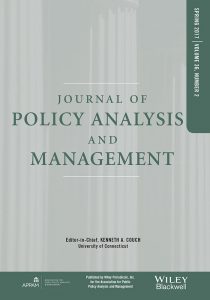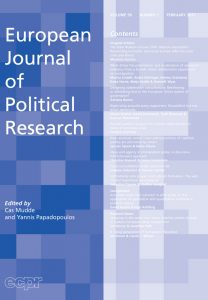"Not In My Name" Fear and Loathing on the Campaign Trail

Picture courtsy of http://home.bt.com/news/uk-news/farage-defends-ukip-leave-campaign-migrants-poster-11364068302241
“Not In my Name” they shouted. That was ten years ago, but it feels as though the same could be said today of the increasingly hate-filled, aggressive tone of public life in the UK, United States and much of Europe. “Not In My Name” was one of the slogans of the campaign against the UK’s invasion of Iraq. Although I was sympathetic to the message at the time, I thought this was a slightly pathetic, anodyne slogan, one which felt helpless, too-late, irrelevant to events. By the summer of 2003, we were already at war, the protests had failed, all we could do was shout that it wasn’t our war. It might’ve been British aircraft bombing Baghdad, and I might’ve been a British passport holder, but it wasn’t my war. That was the best we could do.
More and more, I can hear the words of that slogan echo around as I survey a series of recent events that are stretching the bonds of country, political party, and tribal loyalty almost to breaking point. In the United States, we see Donald Trump’s election as Republican presidential candidate effectively ‘stealing’ the party from long-standing GOP members who now are in the uncomfortable position of contemplating not supporting the candidate of the party they have been a part of, in some cases for decades.
Trump’s quite remarkable rise is perhaps just a dramatic example of political parties being “broad churches” – large organisations which contain people who often disagree more often than they agree on a host of issues. Party members regularly have to hold their tongue when one another speaks, although sometimes that’s hard. I’m minded of Ken Livingstone’s allegedly anti-semitic remarks which have recently angered his Labour party colleagues in the UK, or the internal turmoil in the Conservative party as they argue over whether to stay in or leave the EU, more of which later.
Religions are also institutions which are often riven with internal disagreements, and anger at the way they are misrepresented to outsiders. Muslims have taken far more than their fair share of criticism over the last ten or fifteen years or so as a small minority of extremists tarnish the reputation of billions of peaceful believers. After the knife attack by a Muslim on an innocent man at London’s Leytonstone tube station, an anonymous man was filmed shouting ‘You ain’t no muslim bruv’ at the attacker as he was apprehended by the police. The comment, video and hashtag #youaintnomuslimbruv went viral, with even David Cameron quoting it, (albeit slightly awkwardly). The man who made the comment, ‘John’ told the Guardian he was upset about generalisations linking Muslims to extremism. “People look at Muslims, and look at Isis, and think they’re all the same. But obviously they’re not.”
There is something deeply irritating and discomforting about feeling that a community you are part of is being misrepresented. I’ve always found it strange that we should feel pride or shame for actions which are not our own. How or why should I feel ‘proud’ or ‘ashamed’ of the actions of other members of my political party, my religion, my country’s government? Surely I should only have pride or shame over the things I have done, said, or not done/said. But as humans, we are inherently social creatures and the ‘imagined communities’ we inhabit do matter, even if sometimes we wish they didn’t.
Enter the Brexit debate, a ‘debate’ which is becoming ever more aggressive, negative and divisive by the day. Earlier this week, the Leave campaign’s sick poster depicting refugees in Europe as a warning for us to leave the EU was depressing enough. But when prominent Remain campaigner and Labour MP Jo Cox was – tragically, awfully, – shot and killed, apparently by a crazed nationalist shouting ‘Britain First’, I started to despair a little.
In another strange and repellent twist in events this week, politics and football – two ingredients which shouldn’t really be mixed – also got shaken up in a rather vile cocktail. In France, my English compatriots have torn up the streets in Marseilles and Lille, dragging the St. George’s cross back into nasty connotations with racism and violence. It’s hard to decide which was the most obnoxious sight of our drunken England fans: mocking a group of gypsy children by throwing coins onto the street for them to fight over; giving a seven year old boy a pint of lager to down for a few euros; or them singing “Fuck off Europe, we’re all voting out” before the police started throwing tear gas at them.
If we do say “Fuck off” to Europe, and vote to leave the EU on June 23rd, it will be amid this atmosphere of aggression, xenophobia and fear. I will pathetically say ‘Not in my Name’ to anyone who’ll listen, but the damage will have been done, and the UK’s deserved reputation as a tolerant, outward-looking and multicultural nation will be forever tarnished.
By William M. Connolley – Own work, CC BY-SA 3.0, https://commons.wikimedia.org/w/index.php?curid=24197431
Who are these people? How can my own country feel so alien to me? Who are the people who think, speak and behave so very differently to me? We were all raised in a similar culture, probably in a not dissimilar education system, in a country which is geographically quite small. But, although sometimes it’s hard to notice, the UK (and no doubt other countries too) is becoming more segregated, both in the physical and virtual domains we inhabit. Online, the ‘echo chamber’ effect – where we only engage with people and opinions we already agree with – is now becoming an empirically observable phenomenon, as shown by recent research by Del Vicario et al. In the physical world, a recent paper by Stoker and Jennings titled “The Bifurcation of Politics: Two Englands” describes a country which is segregated between an urban, cosmopolitan, global, liberal ‘England’, and a rural, illiberal, nostalgic, anti-EU ‘England’.
The two worlds rarely meet. Our sense of what is real is filtered by where we live and who we associate with, perhaps more now than ever before. Danny Dorling has written extensively about how the UK is becoming ever more polarised politically, economically and geographically. For example, he writes in his book ‘Injustice’ that non-conservative voters have not been more unlikely to live near a conservative voter at any time since the First World War. We choose to keep away from people who are unlike us.
So perhaps it is not all that surprising that we don’t really know our own country as well as we think, and the people who we expect to be ‘like us’ are often a crushing, stupefying disappointment. One way or another, the EU referendum result is sure to disappoint a lot of people. But unlike general elections, the decision to go to war, or the criminal actions of a few people, there will be no specific person, or persons, to point the finger of blame at. For Gerry Stoker, this is one reason why referendums are generally a bad idea – there is no accountability, and no going back. If we get the decision wrong, the only people to blame will be the millions of other people who, it turns out, are quite different to us. Rather than settling the issue for a generation, it might create even greater bitterness, resentment and alienation for an imagined community which is not quite as we’d imagined after all.





